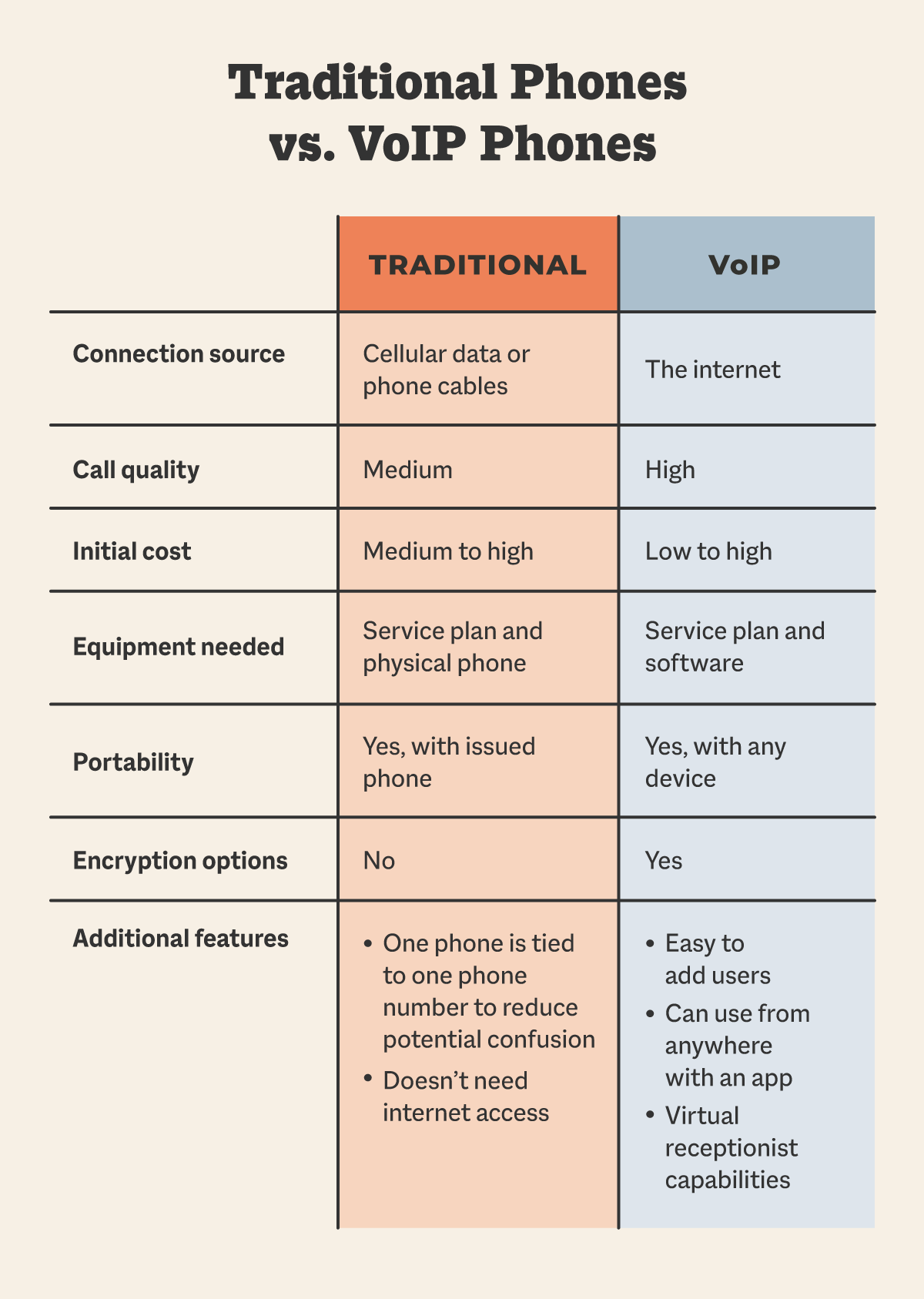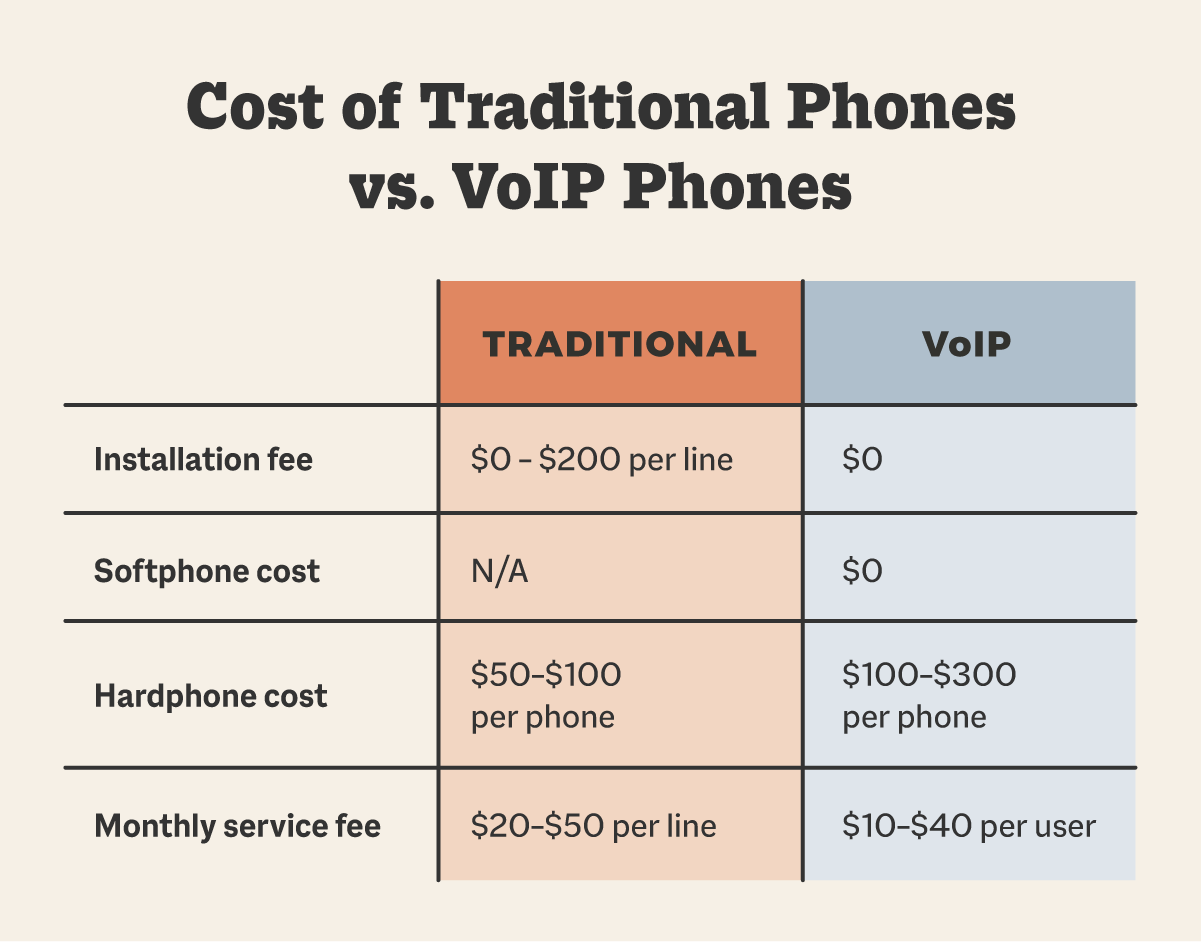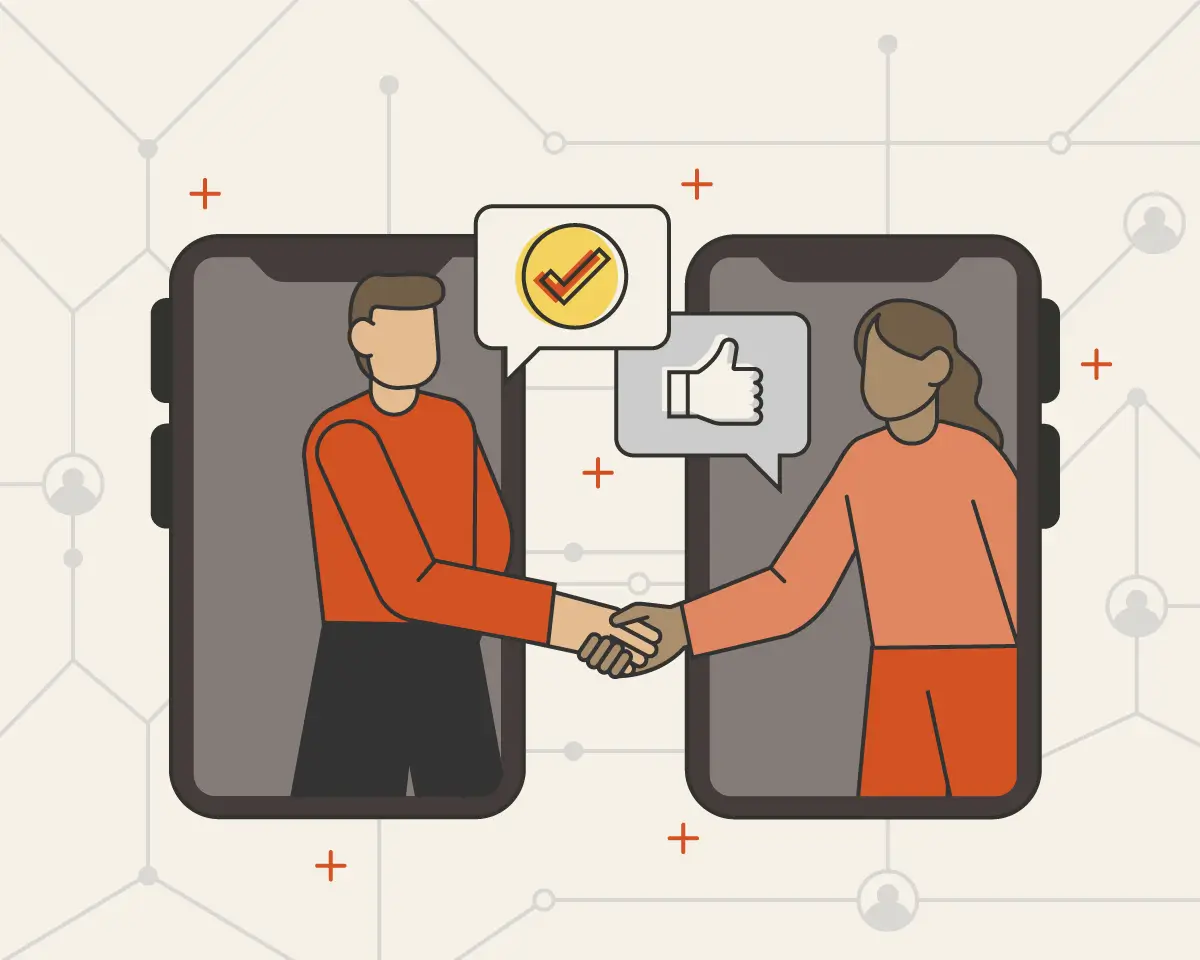What Is a VoIP Phone System: How IP Communications Can Benefit Your Business

If you’ve ever used Skype, WhatsApp, or Zoom, you may already be a VoIP expert without knowing it.
VoIP, or Voice over Internet Protocol, is a system that lets you make calls through the Internet rather than traditional telephone providers. This growing method of communication is changing the way businesses interact with their customers and employees — but with new technology comes new questions. After all, what is a VoIP phone system? How does it work? Is it right for your company?
Below, we will explain the basics of VoIP — from a technical overview to price comparisons. You will learn how VoIP can revolutionize your operations, and how you can use it with services like virtual receptionists to free up time and streamline communications.
Table of contents
- What is VoIP?
- How does a VoIP phone system work?
- Top features of VoIP phones
- What is the difference between VoIP and a regular phone?
- Equipment needed for VoIP
- Price differences between VoIP and regular phones
- Is VoIP a smart choice for your business?
- Additional VoIP FAQs
What is VoIP?
Voice over Internet Protocol is a way to call and text over an internet connection rather than telephone lines or service providers.
Either by downloading an app on an existing device or purchasing a separate piece of equipment, you can use VoIP phone systems anywhere that has access to the internet. Using this technology, users have access to a wide range of features that aren't possible with regular phones.
How does a VoIP phone system work?
VoIP phone systems work by transmitting data over the internet — rather than a cellular provider — to allow users to engage in voice calls and text conversations.
The VoIP process involves turning voices into data packets and sending them to the intended recipient instantly via IP addresses. When breaking down the steps, the process is as follows:
- Step 1: Your VoIP phone or software is connected to the internet and sends or receives a call.
- Step 2: Your voice is compressed into digital data by your VoIP service provider and is sent to the other line via your internet connection.
- Step 3: The other line receives the data, which is instantly uncompressed and turned back into the sound of your voice.
All of these steps happen in the blink of an eye, and communication happens seamlessly, just as it would with a regular phone — that is, as long as there is a strong internet connection.

Top features of VoIP phones
There are a number of advantages that set VoIP phone systems apart from normal telephone providers. Some of the top features include:
- Lower plan cost: Because VoIP providers route calls through the internet, monthly plans are cheaper than enrolling in a telephone service provider. The cause of this is infrastructure — or lack thereof. VoIP companies don’t need telephone lines or physical maintenance, resulting in cost savings they pass on to the consumer.
- Lower equipment cost: While users can still buy physical equipment for offices, one of the main advantages of VoIP is the ability to use the service via an app on an existing phone or computer — both for inbound and outbound calls. As a business, that means you don't need to purchase as many physical phones for your team.
- Increased call quality: While traditional phones and landlines are often reliable, they can experience outages and connectivity issues that VoIP is immune to. As long as a stable internet connection is present, VoIP calls will outperform traditional telephones in quality.
- Unique features: VoIP services have a number of unique features that are not available with traditional providers. For example, VoIP users can set up auto attendants or virtual receptionists to simplify and streamline communication in their organization. Additionally, VoIP services come with options for mobile and desktop apps, ensuring your team is always fully connected.
- Work from anywhere: Most, if not all, of the top service providers offer apps to use VoIP calling from any device. Users need only enter the app on a phone or computer, and they are instantly connected to their work number. This gives flexibility to businesses with mobile sales forces or remote teams.
- Call security: By traveling through IP systems instead of traditional phone lines, information discussed in VoIP conversations is more likely to be secure and confidential. Many VoIP providers also offer additional protection to scramble call data and make sure every call on the network is safe.

What is the difference between VoIP and a regular phone?
VoIP phone systems and traditional phones perform a lot of the same functions, but there are quite a few differences in features, capabilities, and price.
VoIP phone systems offer service through the internet, and have very high call quality as long as a strong connection is present. In terms of start-up costs, they range from low to high, depending on the situation. For a business that wants to use a VoIP service on existing devices via an app or other software, startup costs are virtually nonexistent. For a business that wants to purchase brand-new VoIP phones and other hardware, they can be high.
Traditional phones offer service through cellular data and phone lines, and call quality can vary depending on signal strength and the condition of the lines in the area. In terms of startup costs, they can range from medium to high depending on how much equipment and how many lines you need.

Equipment needed for VoIP phone system
In order to set up a VoIP phone system, you will need a few key pieces of equipment.
Strong internet connection
Whether the phone is hardlined to a modem or router, or connected to a wifi signal, having access to a strong internet connection is arguably the most important part of a VoIP phone system.
Since the entire process happens through internet protocol, a weak or interrupted signal will result in call freezes, failures, and general unusability. Therefore, it’s important to ensure a strong connection, whether you're in the office or on the go.
Service provider
After you establish a secure internet connection, it’s time to select your VoIP service provider. Just as with major cellular companies, VoIP providers connect your phone to other lines, process your data, and ensure proper transmission of information. There are a number of different providers on the market, and it’s important to select the right one that fits your budget and usage needs.
Softphones
The first option for making VoIP calls is to install a softphone.
Softphones are virtual phones that you install via software on your computer or existing telephone. This software is available from your VoIP provider, and gives you a virtual phone number from which you can access on any device.
If you intend to use a softphone with your VoIP service, it’s important to factor in which provider has the best mobile app for ease of use.
Hardphones
The second option for making VoIP calls is to purchase a hardphone.
Hardphones are physical devices that you can access your VoIP phone number from. These range from desk phones to cell phones, giving users a comparable experience to using traditional landlines. This option is more expensive than using softphones but can be useful in a work environment.
Price differences between VoIP and regular phones
When deciding between a VoIP service provider and a traditional phone carrier, there are a few price differences to be aware of.
VoIP phone systems don’t cost anything to install if you plan to utilize softphones. The monthly fee per user is low and typically follows economies of scale if VoIP services for multiple employees are needed. However, if you need hardphones, such as desk phones, the VoIP equipment is typically more expensive than traditional telephones.
Regular phones may come with an installation fee if your office is not equipped for the service, and the cost per physical phone ranges from $50 - $100 per unit. While the cost of physical equipment is typically lower than VoIP phones, the monthly service fee per line can amount to a much greater yearly cost than VoIP services.

Is VoIP a smart choice for your businesses?
VoIP phone systems can be a smart choice for any business to improve communication across the board.
With these systems, employees can answer and make calls from a work number in any place with a reliable internet connection. With a lower cost per month than traditional phones, businesses can increase their bottom line while also having access to increased security, call quality, and several features that cannot be found with traditional phones.
That said, would your business benefit from installing a VoIP phone system? Or are you better served partnering with a company that can take phone management off your plate?
By enlisting the help of a virtual receptionist like we offer at Smith.ai, your business can gain all of the benefits of VoIP solutions with no extra effort. Virtual receptionists screen calls on your behalf 24/7, ensuring you only answer important client calls and qualified customers — giving you time to focus on the tasks that matter most for your business.
Additional VoIP FAQs
Here are a few other questions that come up when considering a switch to a VoIP service.
What does VoIP stand for?
VoIP stands for Voice over Internet Protocol, and it works by transmitting data over the internet rather than traditional telephone lines.
Why would someone use a VoIP phone?
VoIP phones are typically cheaper to set up and use, have better sound quality, and come with a number of features that you can't find with regular phone plans.
Can you use a VoIP phone as a regular phone?
Yes, you can use a VoIP phone as a regular phone.
VoIP phone systems work the same way as traditional telephones, the only difference being that VoIP uses the internet to transmit information. In fact, VoIP phones can be more reliable and have higher-quality audio than regular phones.
Partner with Smith.ai to streamline your business communications
Technology changes rapidly in the workplace, and business owners may be wondering what is a VoIP phone system — and whether it can help their operations. VoIP comes with a number of advantages that streamline communications, but it may better serve some businesses to gain the benefits of VoIP without the extra work.
Partnering with a 24/7 virtual receptionist like we offer at Smith.ai can assist with leads, call screening, and outbound sales so you can focus on the tasks that matter most for your business. Additionally, we work with all VoIP providers to make sure your organization doesn’t miss a beat when switching to an IP phone system.
Book a consultation today to learn how Smith.ai can supercharge your communications.
Related Posts

















.svg)
